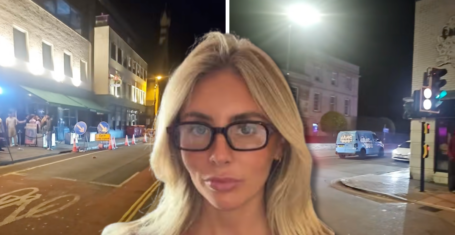
These are the Russell Group unis that have banned students from using ChatGPT
Nottingham says it’s training markers to spot changes in students’ writing
ChatGPT has exploded onto the scene, and students are already admitting to using it for their uni work.
Last month, The Tab wrote a uni essay in 20 minutes using ChatGPT and sent it to a lecturer at a leading Russell Group university. The lecturer gave the essay a mark of 53, saying: “You definitely can’t cheat your way to a first class degree, but you can cheat your way to a 2:2”.
It’s undeniable that students are using ChatGPT for help on assignments, but what are universities actually doing about it?
The Tab has found that whilst many of the Russell Group have explicitly banned students from using ChatGPT on uni work, other leading unis think there are actually positive ways students can use the tool, that don’t count as academic misconduct.
This is everything you need to know about your Russell Group university’s stance on students using ChatGPT:
Unis like Edinburgh and UCL think there are some ways students can use ChatGPT
At Edinburgh, the uni told us that assessment content made using platforms like ChatGPT “is not representative of a student’s own original work and would therefore be considered a form of academic misconduct”. The uni is in the process of “reviewing implications this may have for assessment design, approaches to detection of academic misconduct, and ways we can ensure that students understand how to carry out assessments with good academic practice in mind”.
However, the uni told The Tab it understands how AI can present opportunities for learning, and as such the uni is “actively looking at ways in which course design and assessments may be able to incorporate these new technologies”.
Most Read
Fellow Scottish uni Glasgow is working with experts to see how it can use ChatGPT as a learning tool for its students. The uni was one of the first of the Russell Group to publicly support ChatGPT as a potential future part of students’ day-to-day learning, with a spokesperson for the university telling The Glasgow Tab: “ChatGPT is a new technology, which brings with it new opportunities as well as new challenges.
“We are working with experts from across the University and beyond to better understand ChatGPT’s capabilities and limitations, and how best to advise students to use it appropriately as a learning tool.” However, it also warned students against misusing the software, and said the university will “harness developments to detect the use of AI”.
Rather than stopping students from using AI tools like ChatGPT, UCL says it’s supporting students in how to use them well. “We believe these tools are potentially transformative as well as disruptive, that they will feature in many academic and professional workplaces, and that rather than seek to prohibit your use of them, we will support you in using them effectively, ethically and transparently”, the uni’s website says.
The uni says ChatGPT could be used for drafting or structuring ideas, helping to improve grammar and writing structure, and getting explanations of topics. However, whilst it thinks AI can be used in useful ways, UCL explicitly warns students against using “AI tools to generate an essay and submit it as if it was your own work”, and says students must acknowledge when they have used it.
Warwick told the Telegraph the use of ChatGPT has not been banned, saying the technology could be seen as a positive for students “to lever and learn from.”
And a Queen’s Belfast spokesperson told The Tab the uni is looking both at the potential and the challenges of ChatGPT. “We are currently reviewing the capabilities of the technology and the implications that need to be considered”, they said. The uni has published guidance on the use of ChatGPT, and says appropriate ways students can use the tool include for revision or as a tool for refining writing.
Many of the Russell Group unis, including Oxbridge, have explicitly banned students from using ChatGPT
Birmingham is amongst the unis who have strict rules against students using ChatGPT. A uni spokesperson told The Tab: “The use of AI chatbots such as ChatGPT to attempt to gain an unfair advantage in assessment would be considered unacceptable under our Code of Practice on Academic Integrity and Student Conduct Regulations. We have also updated our guidance for students to be clear about this.”
Cambridge University says its strict guidelines on academic integrity stress that students must be the authors of their work. “Content produced by AI platforms, such as ChatGPT, does not represent the student’s own original work so would be considered a form of academic misconduct to be dealt with under the university’s disciplinary procedures”, it says.
Oxford has banned its students from using ChatGPT for assessments – at least until further notice. “In relation to student assessment, students have been informed that until further notice we will not permit the use of AI tools such as ChatGPT in their assessed work”, a uni spokesperson told The Tab. “We will be providing guidance to students in the near future, and support and advice to exam boards, to minimise problems and concerns in the current assessment cycle.”
Manchester says that students should not submit work for an assessment that’s been generated by a tool such as ChatGPT, saying: “Such work would be considered as academic malpractice; the words and ideas generated are not your own.”
It’s the same story in Bristol, where the uni told the BBC “unauthorised use” of ChatGPT and other similar software “would be considered a form of cheating under our assessment regulations”.
Queen Mary, London emailed its students over the Christmas holidays, warning them against using “an AI chatbot” and saying it would count as plagiarism. The email said: “Do not ask an AI chatbot to write your assessments for you. This would constitute plagiarism under the QMUL academic misconduct policy.”

The Queen Mary email, via The London Tab
“We take a firm line with any students that are found guilty of committing assessment misconduct offences”, an LSE spokesperson said. They said the uni “takes a pro-active and methodical approach to the prevention and detection of assessment misconduct”, however it is also exploring “explore possible impacts and how we might embrace the potential of these tools in teaching, learning and assessment in the future”.
Imperial and Nottingham are developing ways to spot when students are using ChatGPT
Plagiarism checking site Turnitin is developing software to detect if a student has used an AI chatbot, such as ChatGPT, in their essay – but unis are starting to work out their own ways, too.
Nottingham says markers are trained to spot changes in students’ writing styles, and said the uni has various ways of detecting when people have used ChatGPT. A spokesperson told The Tab academic misconduct “includes cheating, falsifying results, plagiarism and the use of essay banks or the misuse of AI software such as ChatGPT.”
They said: “The University has a raft of measures to detect and deter this behaviour and academic markers are trained to spot changes in their students’ writing styles. A range of resources and tutorials are also offered to students to enhance study skills and emphasise the penalties for cheating.”
Imperial says ChatGPT can have its uses. “AI models are powerful and can be an effective way to check the quality of your written work, prompt new ideas, or generate simplified explanations of complex topics to support your learning”, the uni’s website says.
But it says that to submit work created by someone or something else as if it was your own is plagiarism and students who were to cheat in this way would go through academic misconduct procedures. It says departments may choose to randomly invite students to an “authenticity interview” about assignments they submit.
“This means asking students to attend an oral examination on their submitted work to ensure its authenticity, by asking them about the subject or how they approached their assignment. Being invited to an authenticity interview does not mean that there is any specific concern that you have submitted work that is not your own”, the uni says. However, it says it is still developing its guidance on ChatGPT and this is subject to change.
And other unis are still working out what to do
Some unis, including York, are still reviewing their policies around ChatGPT. A York spokesperson told The Tab the uni is currently looking at the potential opportunities the tool can bring, as well as the challenges and potential for academic misconduct.
“We are working with our departments to respond to the potential impact of artificial intelligence and are undertaking a review of our academic misconduct policy. Our view is the current policy does encompass use of artificial intelligence as a form of academic misconduct, but we are looking at both the challenges – and opportunities – it presents for making university learning experiences more rewarding and relevant”, York said.
Sheffield says the same thing, with a spokesperson telling us the uni regularly reviews its policies, including plagiarism, but it is also “considering how platforms such as ChatGPT might be used to enhance educational experiences and ultimately student learning”.
A Durham University spokesperson told us the uni is currently reviewing its policy.
Cardiff said the improper use of AI such as ChatGPT would be covered by its existing policy on academic integrity, although the policy doesn’t specifically reference this, and it is currently developing guidance. “We are aware of the potential impact of AI programmes, like ChatGPT, on our assessments and course work. Maintaining academic integrity is our main priority. Our aim is also to educate our students about the proper use of AI and its many benefits. As a result, we are currently reviewing our existing policies and will be issuing new University-wide guidance shortly.”
Exeter, King’s, Leeds, Newcastle, Southampton, and Liverpool unis have been contacted. This article will be updated.
Related stories recommended by this writer:
• I got ChatGPT to write my essay to see if I could get a 2:1 from a Russell Group uni
• ‘I know so many people using it’: Meet the Glasgow students using ChatGPT for their uni work
• Number of students cheating at Russell Group universities has more than doubled since 2019



















